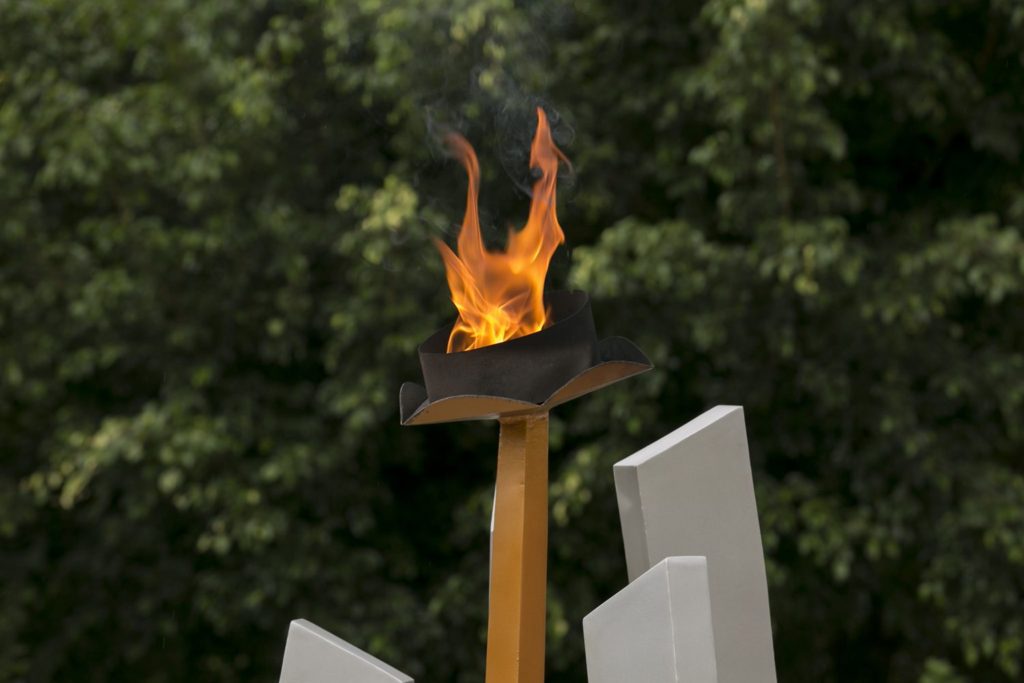
By Bertrand Byishimo, The New Times
Although cases of coronavirus continue to rise, the National Commission for the Fight against Genocide (CNLG) has said that commemoration activities for the 26th anniversary of the Genocide against the Tutsi will proceed.
In an exclusive interview with The New Times, Jean-Damascène Bizimana, the Executive Secretary of CNLG, said there will be changes to this year’s commemoration activities.
“As we are in a challenging situation of fighting against coronavirus, this year’s commemoration activities shall have some changes,” he said.
Some of the changes will affect the communal discussions that usually attract big gatherings during the commemoration.
The Kwibuka26 schedule
April 7: As the commemoration commences, each district will design a delegation of fewer than ten people who will join at a memorial site and pay tribute to the people buried there.
There will be few mourners to pay respect to the genocide victims buried there, the lighting of the flame of hope and one minute of silence shall be observed.
According to CNLG, this will apply to the Kigali Genocide Memorial in Gisozi whose ceremony will be followed by a general address from the guest of honour, most likely President Paul Kagame.
This will not take more than 30 minutes, Bizimana says.
This tribute homage will be accompanied by a talk in the afternoon that will focus on the history of the genocide.
“We will then broadcast a nationwide talk about the impact and strategies regarding keeping the records of the history of genocide, the digitalization and research regarding the archives of Gacaca court proceedings,” Bizimana told The New Times.
The CNLG head also announces that the usual Walk to Remember procession and the commemoration night vigil won’t take place.
He says that the Walk to Remember that has been held for the last 25 years will be replaced by a broadcasted talk show while the night vigil, which encompasses survivors’ testimonies will be replaced by survivors’ success stories that will be broadcasted on different media channels.
April 8: According to the statistics, 70 per cent of Rwanda’s population is youths.
In other words, the oldest people among the country’s youths were five years during the 1994 Genocide against the Tutsi.
Therefore, this day’s talk will entail the role of the youths to fight and combat the ideology against the genocide.
April 9: The third day of the commemoration week will focus on the journey of the survivors. The umbrella of the survivors’ organisations, IBUKA, will moderate the talk with the organisations from different parts of the world.
April 10: This day will be about digging deep into the role that the media played in fuelling the genocide. Most of the media houses that were in place like Radio Television Libre des Milles collines (RTLM) and Kangura Magazine helped to fuel the genocide ideology.
There will also be an impact assessment of today’s media and how it can contribute to the unity and reconciliation of Rwandan citizens.
April 11: The date will be about the role of the global community in never again campaign. There are several international bodies and governments accused of having a hand or unwillingness to stop the 1994 Genocide against the Tutsi. This day will base on published reports of their role, focusing on what those bodies and governments have learnt from Rwanda.
April 12: In 2018, the Ministry of Health alongside CNLG released a study that revealed that 30 per cent of the survivors still face trauma stemming from the 1994 Genocide against the Tutsi. On this date, the discussions will revolve around fighting trauma.
April 13: The closing date of the official commemoration will see few officials attend a commemoration of politicians killed during the genocide, an event that will be held in Rebero where some 14,000 genocide victims are buried.
The final day of the commemoration week will analyse the role of political parties in dividing citizens. The talks will also look at the new political system of unity and how it can be leveraged for social and economic development.
